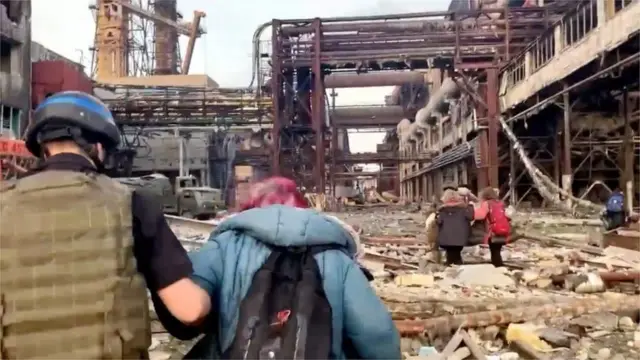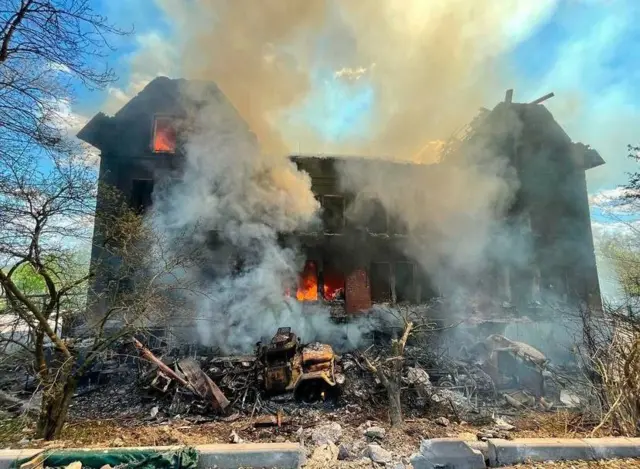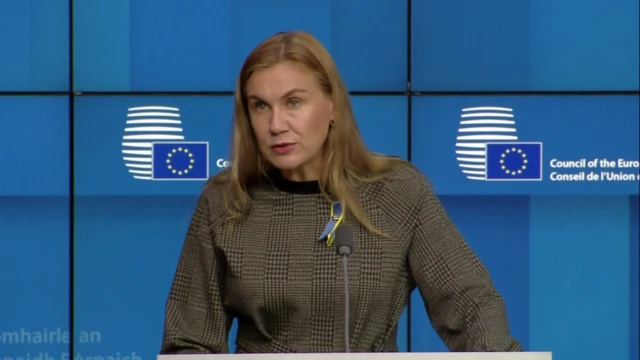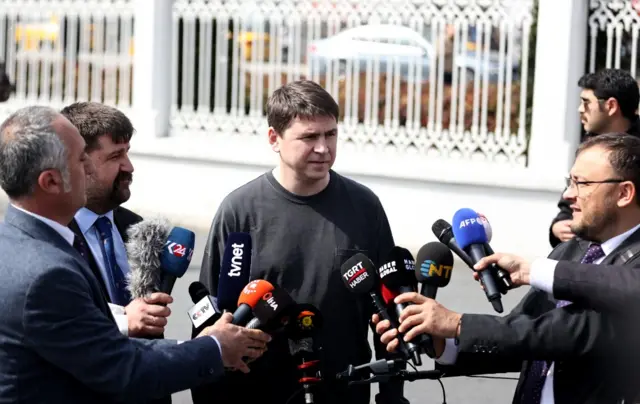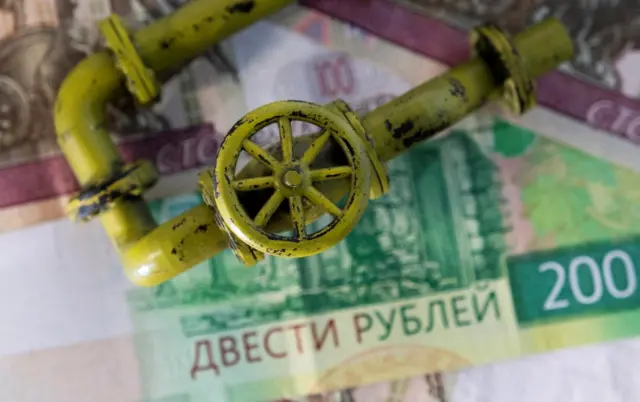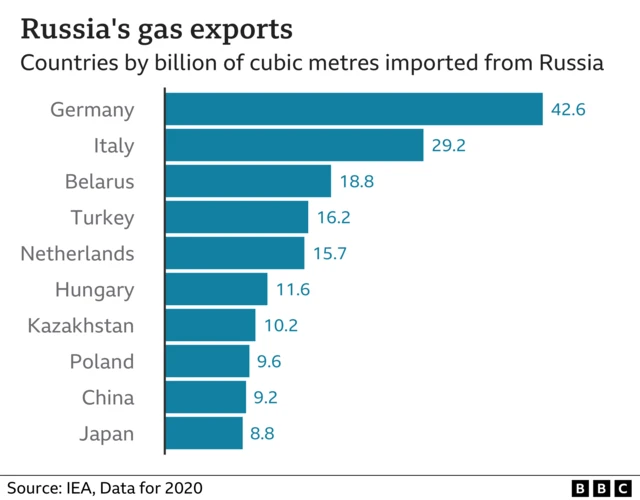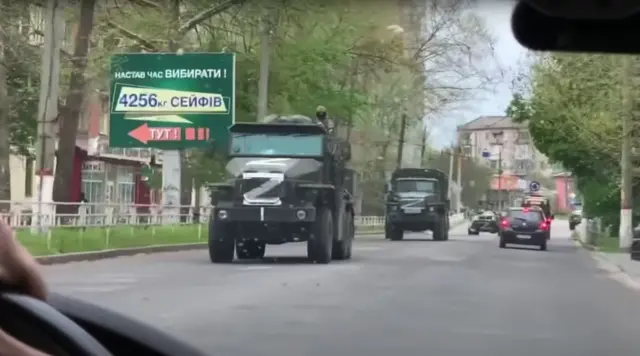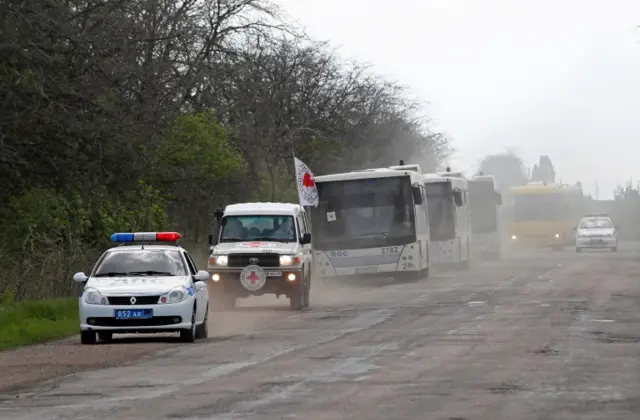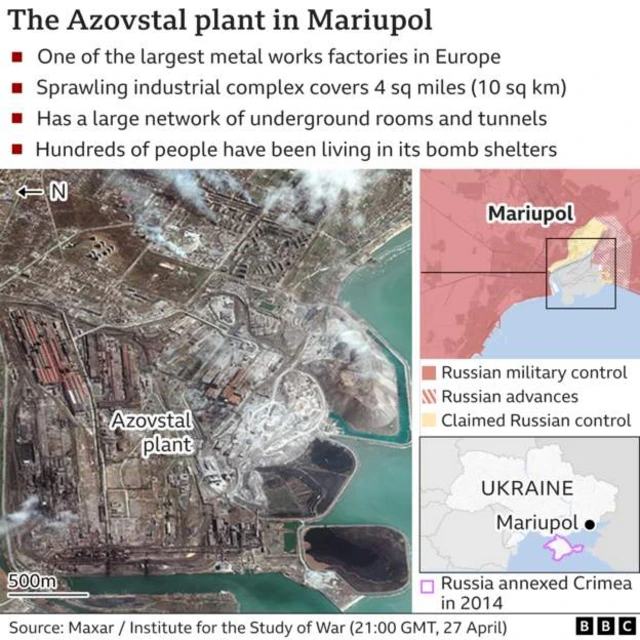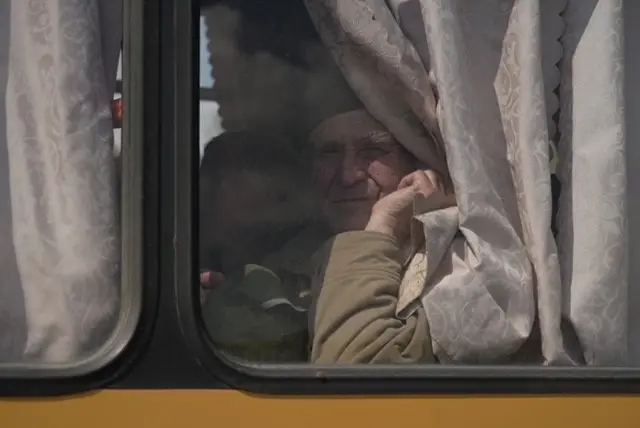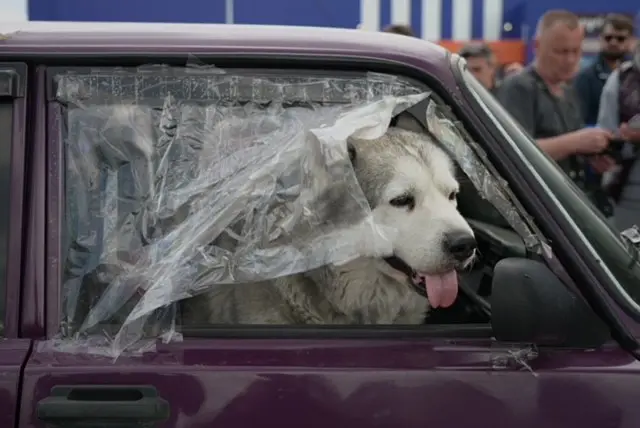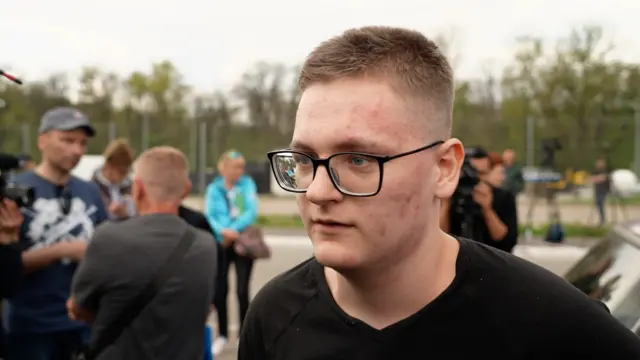'We did not expect such an inhumane war' - steelworks bosspublished at 19:59 BST 2 May 2022
Ben Brown
BBC News
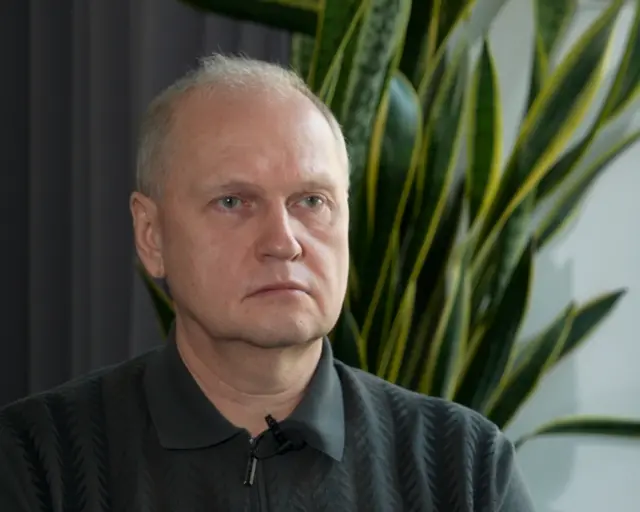
Enver Tskitishvili said the Ukrainian government updated Azovstal’s bunker system in 2014
The boss of the besieged Azovstal iron and steelworks in Mariupol has been talking to the BBC.
Enver Tskitishvili, director general of the company, explained why it’s been such a fortress for the Ukrainian fighters who are now making a desperate last stand against Russian forces who’ve bombed and shelled it for weeks.
Originally built in 1930, the Soviet authorities equipped it with 36 bunkers, some of them able to withstand a direct nuclear strike. There was also a sprawling network of tunnels, eight metres underground.
After Russia’s incursions into Ukraine in 2014, the Ukrainian government updated Azovstal’s bunker system, and this year, it gave fighters in the city details and maps of the underground network, and supplied the plant with 40,000 packages of food - each one enough for one person for one day.
It helps explain how thousands of fighters and hundreds of civilians have been able to survive underground for weeks on end, only some of the women and children now being evacuated.
"When the war started we made an announcement in the city that all people, if they were injured during the bombing and shelling, could come to us," Tskitishvili said.
But he added: "We thought it was possible we'd be shelled, but we did not expect such a genocide and such an inhumane war."
The director general also explained that Azovstal is a natural fortress because it’s surrounded by water on three sides - a river on one, and the sea on two.
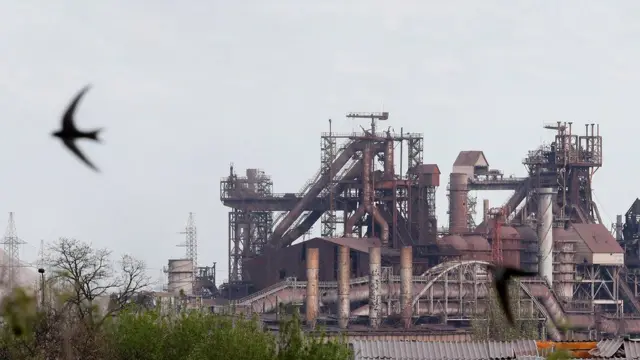 Image source, Reuters
Image source, ReutersA group of about 20 civilians left the Azovstal steelworks in Mariupol on Sunday
